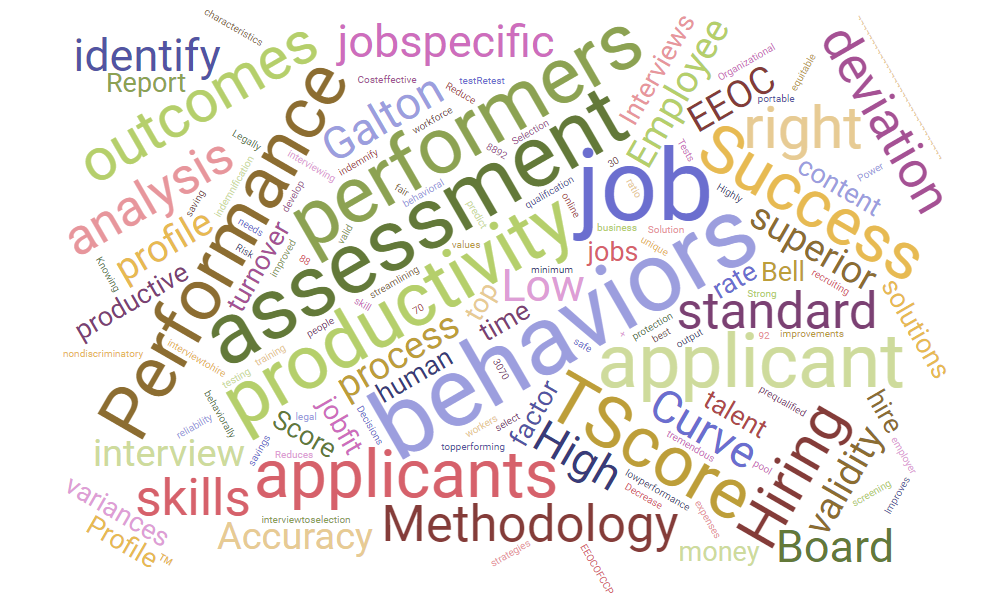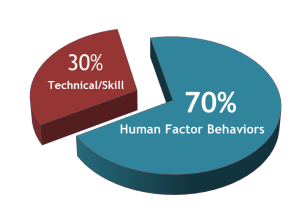
In their search for high-performance job behaviors, companies have used “tests” in some form or another for as long as companies have been hiring. Although the tests used may or may not have had anything to do with the applicant’s ability to do the job.
After World War II employment testing got taken over by industrial psychologists and went one of four basic ways:
- IQ
- Aptitude
- Psychological
- Skills or Skill/ Knowledge
Each of these is better than just an interview. Interviews are notoriously poor indicators of job performance. They are far too subjective and frequently focus on criteria that have little or nothing to do with the person’s ability to do the job. In fact, the probability of the interviewer to predict job success is .50 or 50/50.
IQ test
IQ tests don’t even predict success in college very well and while all jobs require some level of intelligence, the relationship between IQ and job performance is not linear, i.e., the higher the IQ the greater the job performance. For example, a bank teller with an IQ of 140 is not necessarily a better bank teller than one with an IQ of 115. In fact, the relationship is more likely curvilinear.
Aptitude tests
Aptitude tests are too general. They may point you to very broad areas, but they don’t predict success in specific jobs.
Skills testing
Skills testing is good but it is best viewed as an indicator of minimum qualifications. Additionally, most jobs are a maximum 30% technical. And even if one had a perfect measure of the 30% of the job that is technical (an unlikely event), one would still only be measuring 30% of the job and there is no way to predict overall job success based on 30% of the job.
Psychological tests
Psychological tests are all over the place, but basically, they are all looking for the “big six” or “big eight” personality traits (passive-aggressive, introvert-extrovert, etc.). They are measuring psychological traits or constructs. They measure the person in the abstract. Then someone has to make the logical leap from the abstract to the actual job requirements. In recent years they have begun using the term “behavioral testing” to market themselves. Perhaps in an attempt to reinforce perception. Unfortunately, their use of the term “behavioral” given their particular methodology is somewhat misleading. or at a minimum, a very liberal interpretation.
Why Measure in the Abstract, Measure for the Actual Job Behaviors
The fact is, the use of psychological tests/assessments will yield a correlation in general terms. However, the question we ask is why measure the person in the abstract? Why not measure the person for the job? Why not look at the actual job behaviors -all of them, not just the technical- which account for variances in productivity outcomes. What do a high-performing “extrovert” and a high-performing “introvert” have in common? They both do the actual job behaviors which impact productivity so why try to build a construct? Better (and more predictive) is to look specifically at the actual job behaviors that come from a job analysis with top-performing employees.
Productivity is in the detail: the actual job behaviors, not in the trait or construct. The competition’s model says that person x is an introvert and then they generalize to the behaviors. We don’t care what kind of personality a person is. What we want to know is if they do the specific job behaviors that superior performers tell us make differences in productivity outcomes on the job. More accurately, we take their model and turn it right-side up!



